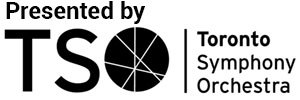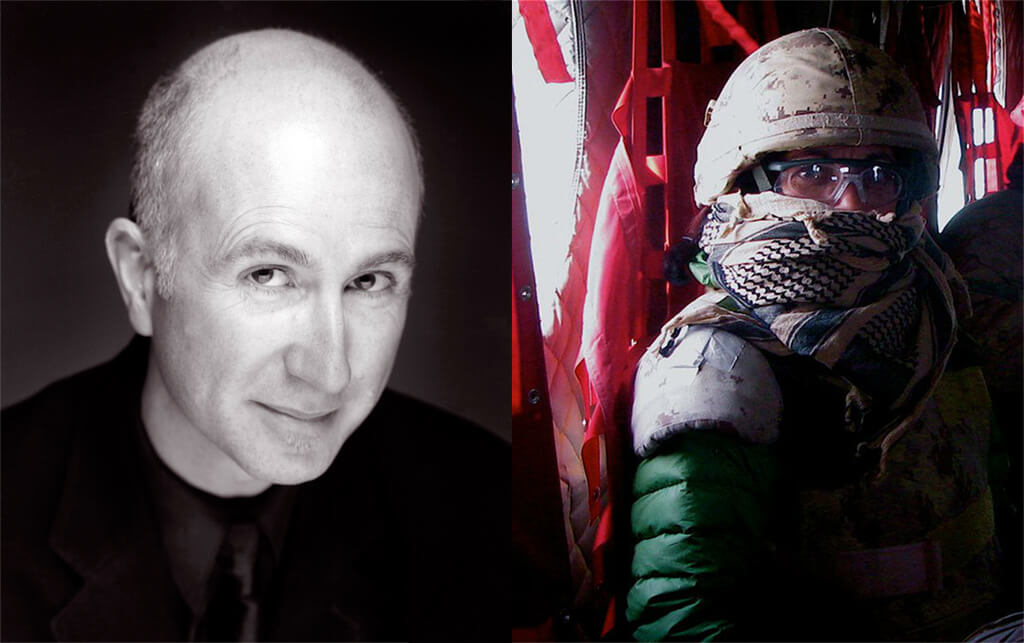

This year, the Toronto Symphony Orchestra (TSO) has programmed two performances of Afghanistan: Requiem for a Generation to coincide with Remembrance Day, which will push audiences out of their comfort zones to scenes from the Afghan battlefield.
The axis of the concerts is the namesake requiem, a setting of author Suzanne Steele’s poetry and music by composer Jeffrey Ryan. The collection of wartime vignettes initially premiered in Calgary in 2012, and this year the piece makes its way to Toronto. If past performances are any indication, audiences will laugh and they will cry.
“I think art is about compassion and empathy,” Steele reflects. “I think you know you’ve hit the mark when you’ve got people crying in the audience, but there are also people laughing…”
Against the backdrop of their Canada Mosaic concerts, the TSO has assembled a squad of seasoned musicians for November 9 and 11 to bring four frontline war personnel to life. Colin Ainsworth (tenor) and Brett Polegato (baritone) will play two soldiers: one apparently unaffected and the other stricken with post-traumatic stress disorder (PTSD). Measha Brueggergosman (soprano) will juggle a number of roles, including that of a medic tasked with making life and death decisions on behalf of her patients. Allyson McHardy (mezzo-soprano) will portray a mother and a lover.
Sharing the Roy Thomson Hall stage are the Toronto Children’s Chorus and the Toronto Mendelssohn Choir, reinforced by the forces of the Toronto Symphony Orchestra. Under the baton of Tania Miller, TSO concertmaster Jonathan Crow and members of the Canadian Armed Forces will interpret several other moving works with a wartime theme, from Vaughan Williams to Canadian composers Julien Bilodeau (November 9) and Jordan Pal (November 11), interspersed with readings of war-themed poems.
“I think art is about compassion and empathy.”
Steele herself holds a music degree in vocal performance from the University of British Columbia and cites the German Requiem by Brahms and Fauré’s Requiem as profound influences on her art. As a poet, Steele puts great thought into word choice, and the word “requiem” encompasses her devout Catholic and musical identities.
When Steele and Ryan sat down to discuss their partnership, it became apparent that music would become a natural fit for the text. The collaborators bounced ideas off each other as to how one medium would influence the other, and inspiration quickly gave way to intention. “Suzanne’s words do not pull any punches but are also beautifully singable and settable,” Ryan commented. It didn’t take long before Ryan was hearing the music in his head.

In a particularly visceral scene from the “Dies Irae,” text and music deliver the searing moment when a Canadian soldier stepped on an improvised bomb, followed by the S.O.S. call sent out in Morse code. Later in the “Libera Me” section, an overwhelmed medic is depicted in the triage ward while the orchestra simultaneously plays and counts out loud. As the music peters out, the voices continue to track the rising victim count. “Jeff did a tremendous job filling in the music,” Steele emphasizes. “It’s a true collaboration; it’s a 50/50.”
In spite of the sombre context, this performance will be a happy reunion for composer and orchestra: Ryan was the TSO’s Affiliate Composer from 2000 to 2002. Fifteen years on, the composer is grateful for the orchestra’s continued backing of his music: “It means a lot to me that the TSO […] has pulled out all the stops to bring [Afghanistan: Requiem for a Generation] to Roy Thomson Hall.”
“Most of us experience war from a distance, through the news,” Ryan adds. “This piece brings an unflinching immediacy to that experience, which I think gives the piece real emotional impact.”
“Everything in the requiem I’ve either seen or been told about first-hand. None of it is imagined.”
Suzanne Steele made military history when she became the Canadian Forces’ inaugural “war poet” through their Artists Program. For 18 months beginning in 2009, Steele was embedded with soldiers in Afghanistan. There, she was privy to their raw confessions of the impact the conflict had on their emotional health, and she captured their stories in an anthology of poems spanning the road to Afghanistan and back to Canada.
Steele stresses that her Afghan deployment was about more than documenting the negativity of warfare, its physical and emotional impacts, and the effects of post-traumatic stress. Steele’s poetry captures scenes of peace as well as well as vignettes from Afghan culture: parents of Canadian soldiers are portrayed, as are children of the local Afghan people. Passages alternate between four languages: French and English to represent Canada and NATO’s official languages, Latin as per the conventional requiem structure, and Pashtun for the Afghan people. “Everything in the requiem I’ve either seen or been told about first-hand,” Steele affirms. “None of it is imagined. Not a single bit.”
Soprano soloist Measha Brueggergosman, normally effervescent, put special thought to her words during our phone call. Though the soprano’s career was formed in classical music, she spoke to the relevance of Afghanistan: Requiem for a Generation for today’s audiences. “Sometimes we can be a little bit distant as classical musicians because we tend to perform music by people who are long since gone. But classical music encompasses so much subject matter; it just speaks to the versatility of classical music.”
Afghanistan: Requiem for a Generation is a solemn piece, and the mood colours her speech. “It’s important that we get together to discuss these issues,” Brueggergosman remarks. “Part of remaining faithful and humble in your work comes down to acknowledging how blessed you are to have been born where you were born.” She is happy to lend her voice to those affected by the conflict, and is hopeful that reconciliation is on the horizon. “Just as much as we can sometimes contribute to the problem, that also gives us an opportunity to be the peacemakers that I know we are.”
It’s the same imperative for social good that the TSO shares. As one of the foremost arts institutions in the country, concerts such as Afghanistan: Requiem for a Generation combine a global prerogative with the organization’s musical expertise. With initiatives such as donating an instrument to a Syrian refugee, the TSO seeks to engage the community well beyond the concert hall.
Afghanistan: Requiem for a Generation will take place in Toronto at Roy Thomson Hall on November 9 and 11 at 8 p.m. For tickets see: www.tso.ca or call 416-598-3375.
- LISZTS | 10 Reasons To Miss A Performance - April 24, 2019
- INTERVIEW | Nico Muhly: Opera’s Renaissance Man - November 8, 2018
- INTERVIEW | How An Iranian Musician Has Created A Revolution In Persian Classical Music - October 7, 2018



